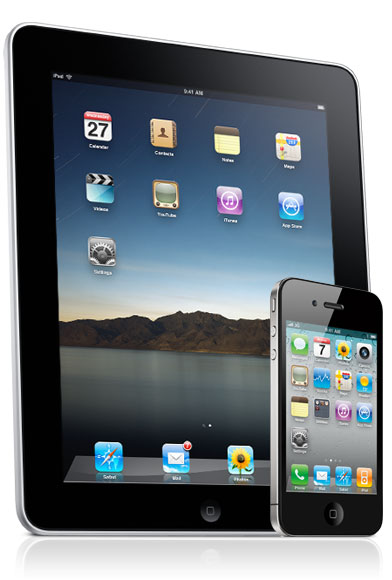
Security firm McAfeee—now being acquired by chipmaking giant Intel— has released its forecast for technologies and platform it believes will get special attention from cybercriminals in 2011. At the top of the list: mobile platforms like Android, social media services like foursquare and URL shorteners, and—wait for it—all things Apple, including Apple’s iOS and Mac OS X operating systems.
“We’ve seen significant advancements in device and social network adoption, placing a bulls-eye on the platforms and services users are embracing the most,” said McAfee Labs senior VP Vincent Weafer, in a statement. “These platforms and services have become very popular in a short amount of time, and we’re already seeing a significant increase in vulnerabilities, attacks and data loss.”
McAfee forecasts that online scammers and cybercriminals will target social media in earnest, starting with URL-shortening services used by social media services like Facebook and Twitter to abbreviate URLs down to smaller forms that take up less space in infamously-terse 140-character missives. Unfortunately, shortened URLs enable cybercriminals to obscure the ultimate destination of a link, drawing users into malicious Web sites and pages that attempt to leverage browser exploits and other vulnerabilities. McAfee also expects scammers will increasingly exploit geolocation services like Gowalla, Facebook Places, and foursquare to gather information for “targeted attacks.” These might be technological—such as identifying nearby mobile users vulnerable to a particular application or operating system exploit—or more old school, such as using geolocation services to determine when somebody is out of the house, potentially leaving their home unprotected.
McAfee also sees growing threats to consumer privacy from devices like Internet TV platforms—which the company forecasts will be targeted by malicious applications—and potentially latching the devices into botnets. And speaking of botnets, McAfee expects they will become more sophisticated and resilient in 2011 in response to recent high-profile takedowns…and bots will increasingly get into the business of holding users’ data hostage, rather than merely acting as spam-sending zombies.
McAfee also forecasts attacks against mobile devices—including iPhones, Android devices, and more—will escalate in 2011 as criminals seek to tap into “fragile cellular infrastructure” to access often unencrypted business and corporate communications. As mobile devices are increasingly commonplace in corporate and enterprise environments, there are more ways for trade secrets and other critical information to escape into the wild—and McAfee believes cybercriminals will increasingly be looking for it.
Finally, McAfee believes Apple will no longer be able to “fly under the radar” in the security world, forecasting that as the Apple’s Macintosh platform gains popularity and market share it will be the focus of sophisticated attacks in 2011. There’s never been anything about the Macintosh that’s made it immune to malware—in fact, technologically, the Mac often lags other platforms in terms of security—but it’s relatively small market share has meant sophisticated cybercriminals haven’t been particularly motivated to target the platform. McAfee says suspicious and malicious apps will increasingly target the Mac in 2011, potentially wreaking havoc on a group of computer users who have historically turned a blind eye to security. Further McAfee believes Apple botnets and trojans will become a “common occurrence” as cybercriminals work to exploit iPhones and iPads, particularly in business environments.

